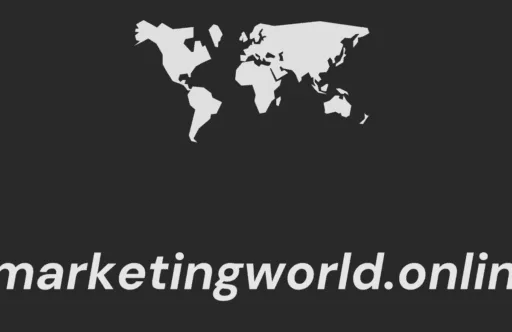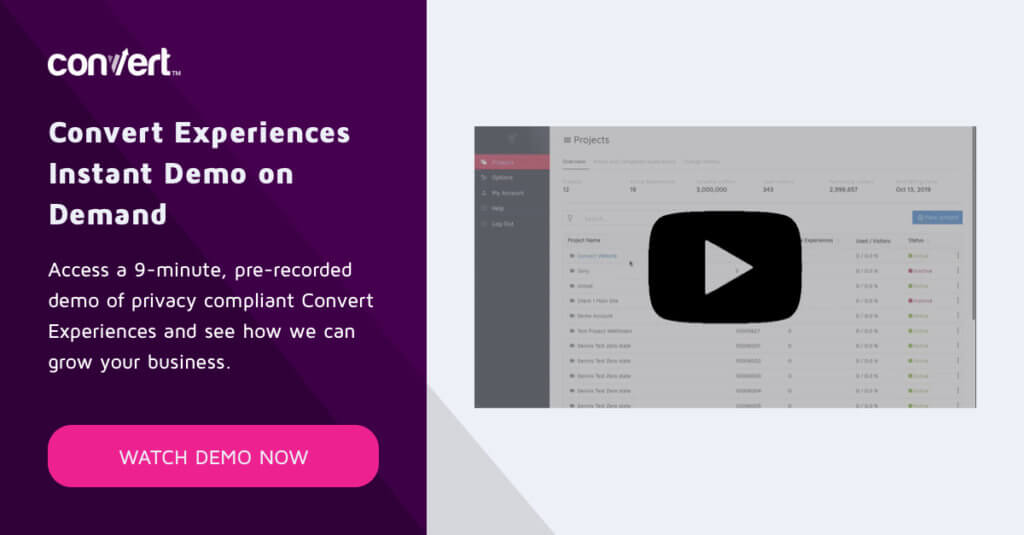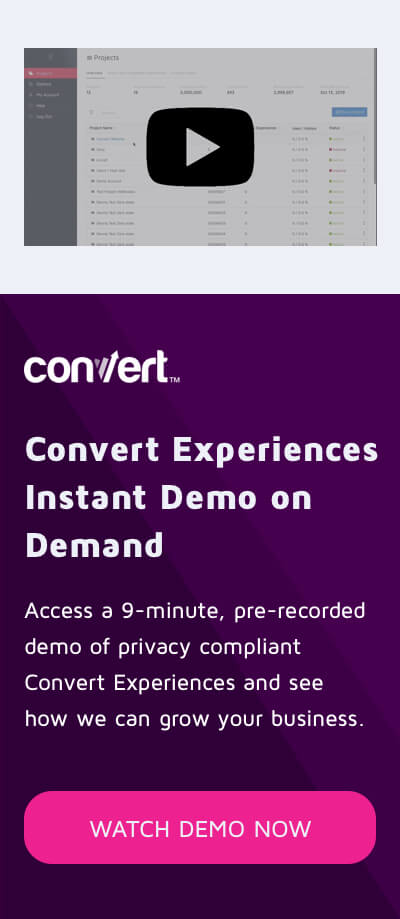The GDPR is completed. And it
impacted solely the companies working within the EU anyway. Proper?
Not likely.
- Privateness isn’t “performed”. Compliance is an ever-present requirement and companies ought to consistently monitor their touchpoints, their information assortment practices, their information processing logic and the identical set of concerns for his or her distributors, on an ongoing foundation.
- The GDPR impacted all companies that processed the information of EU residents – not simply those situated in Europe.
- The GDPR was the tip of the iceberg. The world is turning into conscious of the threats of callous information assortment and processing with impunity. Sure, Europe awakened first. However that doesn’t imply the US and the remainder of the world will hold slumbering.
In reality, the US has
already began on the trail in the direction of revolutionary privateness rules. With
legal guidelines handed in California, Nevada and Maine and payments deliberate in lots of different
states, companies ought to count on to be impacted within the coming months.
This text breaks down the essential components of every state’s privateness regulation regulation/invoice — together with who they cowl, once they take impact, penalties, methods to obtain compliance, why states took the reins earlier than the federal authorities to guard client’s private information in addition to how the embracement of privateness compliance may benefit your corporation.
US Federal Regulation?
In a letter to congressional leaders on
tenth of September, Enterprise
Roundtable CEOs throughout industries urged policymakers to
go, as quickly as attainable, a complete nationwide information privateness regulation that
strengthens protections for American customers and establishes a framework to
allow continued innovation and development within the digital financial system.
The letter, signed by 51
CEOs, was despatched to Home and Senate management and the leaders of the Home
Power and Commerce and Senate Commerce, Science and Transportation committees.
From the U.S. enterprise perspective, there has by no means been a greater time for a federal data-protection regulation to be launched.
The GDPR stipulates that any firm accumulating information on people resident throughout the EU should adjust to the laws – whether or not that firm is predicated within the EU or not. Which means many U.S. companies are already GDPR compliant with a view to function internationally, and have the framework in place to develop this compliance to the U.S. market.
It’s totally different for U.S. nationwide companies. Information safety compliance is turning into a nightmare, with (probably) as much as 50 totally different state legal guidelines with totally different specs and necessities. A federal regulation would streamline this, offering one unifying piece of laws throughout all states.
US State Legal guidelines
In response, states have
taken motion so much earlier.
With legal guidelines handed in three
states, payments proposed in others, and several other states passing new information breach
notification legal guidelines, we’re witnessing the start of a large shift in the direction of
safety for client information and accountability for companies that management and
course of it.
The IAPP Westin Analysis Heart
compiled the beneath checklist of proposed and enacted complete privateness payments
from throughout the nation to assist enterprise efforts to remain abreast of the altering
state-privacy panorama.
Though lots of the payments included within the map will fail to turn out to be regulation, evaluating the important thing provisions in every invoice may be useful in understanding how privateness is creating in america.
California
As one of many first
privateness legal guidelines handed after the GDPR, the CCPA
is appearing because the blueprint for different payments within the US. Efficient January 1,
2020, the CCPA applies to a enterprise that collects/processes California
residents’ private information or does enterprise in California.
These companies are topic to the CCPA in the event that they both:
- Exceed a gross income of $25 million
- Purchase, obtain, promote, or share (mixed whole) private info of fifty,000 or extra customers households, or gadgets
- Achieve 50% or extra of annual income from promoting client’s private info
The CCPA grants rights to
customers much like the GDPR, together with the disclosure of non-public info
and requests for private information. Companies are required to answer
verifiable client requests with info, corresponding to classes and information of
private info, third events, and classes of third events with which
information is shared, and extra.
This part, often known as
information topic requests (DSR) grants customers entry to and deletion choices for
their private info. Additionally, the CCPA requires that companies show a
“Don’t promote my private info” hyperlink on their homepage.
The CCPA will probably be enforced by the Lawyer Common and contains fines as much as $7,500 for every particular person violation.
Nevada
Nevada’s privateness regulation was signed in on Could 29, 2019, however is efficient on October 1, 2019, three months earlier than the better-known CCPA. The legal guidelines are very comparable however have a significant distinction in how “sale” is outlined. Nevada’s regulation is narrower, not overlaying all service suppliers and being extra lenient on monetary establishments.
In response to InfoLawGroup, the CCPA and Nevada
regulation are comparable in that each require “companies to provide you with a course of to
confirm the legitimacy of a client opt-out request and require companies to
reply to the request inside 60 days.”
Just like California, Nevada’s enforcement lies with the Lawyer Common and contains fines of as much as $5,000 per violation.
Maine
Maine’s
privateness regulation was signed on June 6, 2019, however it’s going to go into impact
July 1, 2020. This regulation blocks Web service suppliers (ISPs) from promoting,
sharing, or granting third events entry to their prospects’ information, until
explicitly given approval by these prospects. With the modifications,
Maine residents now have
an additional layer of safety for the emails, on-line chats, browser historical past, IP
addresses, and geolocation information that’s generally collected and saved by
telecommunication and know-how sector firms.
So, whereas the CCPA provides prospects the suitable to opt-out, this new regulation prohibits ISPs from using buyer information until the shopper opts in. This requirement goes additional than the CCPA or Nevada regulation and is comparatively distinctive amongst US privateness legal guidelines, which typically favor opt-out consent.
Don’t Wait—Put together Now:
In response to a 2018 PwC survey, 64% of companies had
not but began to arrange for CCPA rules.
Have you ever postpone beginning
your compliance journey? Have you ever begun the method, however end up
challenged by the fast-approaching deadlines?
The next is an inventory of aware actions which you can take as a enterprise to go down the trail of compliance for a lot of the current legal guidelines, and those that will probably be enforced within the close to future.
Step 1: Replace Privateness Notices and Insurance policies
With all of the “We’ve
up to date our Privateness Coverage” (GDPR-compliance) emails obtained in Could 2018, it
might be affordable to count on one other wave, this time CCPA or Nevada or Maine
compliant, in Q3 2019.
These legal guidelines would require
that “at or earlier than the purpose of assortment” lined firms present discover to
customers informing them of the classes of non-public info the corporate
collects and what goal the knowledge is utilized by the corporate.
The discover should additionally
explicitly set forth the classes of non-public info which can be collected,
disclosed, or bought, and customers have a brand new proper to opt-out of getting their
info bought.
Corporations can even want
to replace their privateness insurance policies to incorporate an outline of the opposite new
client rights.
As many firms needed to decide when turning into GDPR compliant, prior to creating the legally-required coverage updates, firms might want to decide if they may keep one privateness discover for every State residents, or have one common coverage.
Step 2: Replace Information Inventories, Enterprise Processes, and Information Methods
Corporations can even have
to take care of an information stock, which is basically a database to trace their
information processing actions, together with enterprise processes, third events,
merchandise, gadgets, and purposes that course of client private information.
Corporations that needed to turn out to be GDPR compliant must add a number of columns to their information inventories together with, a column:
- figuring out if the information use contains the “sale” of data;
- figuring out what classes of non-public info are transferred to 3rd events;
- figuring out if the information was collected greater than 12 months in the past and, thus, probably exempt.
- The database can even must be stored updated and have the ability to observe all client proper requests, corresponding to monitoring a verified request for info.
Step 3: Implement Protocols to Guarantee Shopper Rights
These legal guidelines assure various client rights that companies might want to take steps to make sure.
- Proper to Discover – Whereas it isn’t precisely a granted proper, at or earlier than a enterprise collects private info from a client, the patron should be correctly notified which classes of data are being collected and the needs for which the knowledge is getting used.
- Proper of Entry / Proper to Request – Upon verifiable request, the enterprise should take steps to reveal and ship, freed from cost to the patron, the private info, which can be delivered by mail or electronically. If offered electronically, it should be offered in a conveyable and, to the extent technically possible, in a readily usable format that permits the patron to transmit the private info to a different entity with out problem. A enterprise might present private info to a client at any time, however doesn’t have to offer it to a client greater than twice in a 12-month interval.
- Proper to Know – The patron has the suitable to request {that a} enterprise that collects private info to reveal the next: (1) the classes of non-public info collected; (2) the sources from which the knowledge was collected; (3) the enterprise or industrial goal for accumulating or promoting the knowledge; (4) classes of third events with whom the enterprise shares the knowledge; (5) the particular items of non-public info the enterprise collected in regards to the client.
- Proper to Delete – The patron has the suitable to request, upon verifiable request, {that a} enterprise delete any private details about the patron the enterprise has collected. Upon receipt of such request, the enterprise should delete the knowledge and direct any service suppliers to delete the knowledge from its data as properly until the enterprise or service supplier wants the knowledge to: (1) compute the transaction for which the private info was collected, present a very good or service requested by the patron, or fairly anticipated throughout the context of a enterprise’s ongoing enterprise relationship with the patron, or in any other case carry out a contract between the enterprise and the patron; (2) detect safety incidents; shield in opposition to malicious, misleading, fraudulent, or criminal activity; or prosecute these liable for that exercise; (3) debug to determine and restore errors current supposed performance; (4) train free speech, guarantee the suitable of one other client to train his/her proper of free speech, or train one other proper offered for by regulation; (5) interact in public or peer-received scientific, historic, or statistical analysis within the public curiosity; (6) to allow solely inner makes use of which can be fairly aligned with the expectations of the patron primarily based on the patron’s relationship with the enterprise; (7) adjust to a authorized obligation; (8) in any other case use the patron’s private info, internally, in a lawful method that’s suitable with the context during which the patron offered the knowledge.
- Proper to Choose Out – The patron has the suitable to decide out of the sale of non-public info by a enterprise. Companies should make out there, in a kind fairly accessible to customers, a transparent and conspicuous hyperlink to the homepage, titled “Do Not Promote My Private Data” that allow a client to opt-out of the sale of the patron’s private info. The enterprise should wait no less than 12 months earlier than requesting to promote the private info of any client who has opted out.
Step 4: Make Safety Updates
These legal guidelines additionally require lined companies shield private information with “affordable” safety. In apply, this normal has led firms to take a risk-based strategy towards addressing threats to the confidentiality, integrity, and availability of non-public information. They assess the threats to information, rank the dangers of the detected vulnerabilities, and deal with the high-risk gaps first.
Step 5: Replace Third-Social gathering Processor Agreements
To adjust to the US
Privateness Legal guidelines, companies that produce other firms course of their information will want
to replace their third celebration contracts together with inserting standard-contractual
clause language; requiring vendor information inventories; utilizing due diligence
questionnaires; offering data of processing; requiring the syncing of
client response processes; requiring onsite evaluation and auditing; and
requiring mapping of the particular information parts shared with every third celebration,
together with designating these switch that qualify as “promoting”.
For these third-party that paid for info, they might want to moreover design processes to accommodate client requests to decide out of promoting and supply for the deletion of that information.
Step 6: Coaching
Lastly these legal guidelines require that workers dealing with client inquiries be told of all of its necessities. Because of the penalties concerned, this coaching ought to be the minimal and extra worker coaching is advisable.
Suppose It’s a Lot to Implement? Companies will Profit from Compliance:
There was some
criticism of privateness legal guidelines and claims that these legal guidelines are unhealthy for companies.
Compliance programmes price cash however firms can’t count on to earn a living from an asset, like information, and never spend cash to verify their actions are compliant.
Nonetheless, the important thing necessities in privateness legal guidelines, as talked about above, are principally according to widespread sense, so a compliance programme ought to by no means be a bottomless pit.
Furthermore, even when the
authorized stress was not beginning to mount, the moral and consciousness stress
would.
Customers need to do enterprise with firms that
ACTIVELY shield their information privateness.
Sure, there’s a compliance
price, however this ought to be seen as a part of the price of doing enterprise with information,
and constructing and preserving a model’s popularity. As a compliant group,
it is possible for you to to market your adherence, which in flip may also help increase gross sales and
buyer loyalty.
Almost all organizations
worldwide are actually recognizing that privateness funding is translating into
upside enterprise advantages. Organizations which have invested to prepare for the
GDPR are experiencing fewer and fewer
pricey information breaches, they’re seeing much less
gross sales friction because of prospects’ privateness issues, fewer information data are impacted, system downtime was shorter.
These are among the findings from the just lately launched Cisco 2019 Information Privateness Benchmark Research, which pulls on information from a double-blind survey of greater than 3,200 safety and privateness professionals throughout 18 international locations. The examine is the primary in a sequence exploring key points that organizations are going through in privateness and cybersecurity in the present day.
In response to the Cisco examine, 97% of firms say that they’re receiving additional advantages from their privateness investments, past simply abiding by privateness legal guidelines. These advantages embrace aggressive benefit, attractiveness to traders, operational effectivity, and larger capability for flexibility and innovation.
Three quarters of all
respondents stated they had been receiving two or extra of those advantages. Furthermore,
the vast majority of firms now say that sturdy information privateness is a aggressive differentiator of their
markets.
These outcomes spotlight
the necessity for companies to endure modifications not solely to adjust to privateness
legal guidelines, but in addition to maximise the enterprise advantages of their privateness investments.
Enhancing information administration, boosting buyer belief, and experiencing shorter gross sales delays and more cost effective information breaches can all be significant on your organisation and provide the aggressive benefit your corporation must prosper.
The writing is huge and
daring on the wall. Privateness is not only for Europe…it’s the want of the second
for companies all around the world. The shift is turbulent. However it’s one which
was inevitable.
People invented locks to guard their tangible belongings. Now that intangible information is equally valuable (if no more), reckless accumulation and processing of the identical will probably be frowned upon, disliked and in the end seen as a violation.
Privateness compliance practices streamline operations. They usually increase popularity by lowering the danger of breaches. In my view, it isn’t in regards to the effort concerned in compliance, it’s all about waking up early to the truth that compliance might very properly be YOUR subsequent huge aggressive benefit.
Convert has already laid a stable basis. How about you?
Initially revealed October 02, 2019 – Up to date December 14, 2021
Cellular studying?
Authors

Dionysia Kontotasiou
Convert’s Head of Integration and Privateness, serving to prospects with technical queries.





